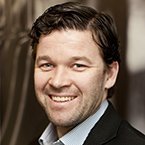
3darcastudio - Fotolia
CIO interview: Martin Thell, Scandic Hotels
The CIO of major Nordic hotel chain Scandic Hotels wants to learn more about customers through technology, without being overbearing
Major Nordic hotel chain Scandic Hotels is making big efforts to be more digital, according to CIO Martin Thell.
"The digital master plan is very central,” he says. “It is in this area we will differentiate ourselves from other hotel chains.”
The most important part of the digital master plan is a new web platform, launching in the near future.
"It will be the basis for everything else,” says Thell. “The master plan covers all the different points where the customers interact with us and outlines how we are to use them in the best possible way. The goal is to make the customer experience as great as possible.”
The interaction with customers starts when they are searching for a hotel, he explains. "We are trying to catch behaviours, so we can use the information to give them suitable offerings. And when they have booked a room, we want to be able to sell on top – maybe a sandwich waiting in the room if they arrive late, or toys if they have kids," Thell says.
The customers might also be able to pick exactly which room they want to stay in, in the same way you can pick which seat you want on a plane.
After the customers have arrived at the hotel, there are a lot of possible services and offerings Thell is contemplating. "We could, for example, tell the customers there is a queue to the breakfast buffet, which gives them the option to wait for a while before they head down to eat," he says.
"And if you have a mobile key, the elevator knows you are going to floor five and could take you there automatically. We could also show you how to find the pool, or other areas in the hotel.”
After checkout, Thell wants to know what the customers appreciated about the stay and what could have been better. "We can then use this information when they are on the web to book their next stay – and we can use it to improve their next hotel experience,” he adds.
Read more about Nordic IT
- Mikko Vastela, the CIO of newly formed Nordic insurance company LähiTapiola, tells Computer Weekly about the importance of informing employees and stakeholders what IT is doing
- Antti Koskelin joined Kone with the immediate task of finishing off a major IT infrastructure project that had already started, but has looked forward ever since
- When Mads Madsbjerg Hansen joined Danish engineering giant FLSmidth he wanted get to know the company and its people, adjust the IT strategy where needed and change the IT organisation to fit that adjusted strategy
- ManpowerGroup Nordic CIO Anna Berggren talks about the importance of IT to the recruitment firm and the different approaches she takes to managing it
- When the Swedish government introduced competition to the pharmaceuticals sector in 2009, the former monopoly faced a major IT transformation
- Svevia CIO Emil Dahlin transformed the IT of a former Swedish government organisation as it became an independent company
The new web platform offers next-to-limitless opportunities, according to Thell. "The challenge is to tweak the digital master plan so that we implement the right things. It is easy to fall for the hype and implement something just because it is based on a new, cool technology, but we want to go for the things that actually give our customers added value," he says.
"Will a mobile key make it more likely for you to want to come back to our hotels? Probably not. But the ability to pick your room yourself might.”
It is also important to Scandic Hotels, amid these developments, to make sure the customers do not feel they are being spied on, says Thell. "We do not want them to feel supervised. This is a balancing act,” he says.
Future digital services
Except for the new web platform, the future digital services and offerings are also heavily reliant on positioning technology, sensors, the internet of things and a new market automation platform, based on Salesforce.
"This platform has recently gone live, but we will not be using much of the functionality until next year," says Thell. "It makes it possible for us to follow the customer’s journey and what they are doing in our environment. And that makes it possible to draw conclusions about what the guest might want and to automate intelligent communication with them.”
It is crucial for Thell to get the customers into Scandic Hotels' own digital channels. "We are very heavily dependent on websites such as Hotels.com and Expedia, but if you come to us through them, it is not possible for us to give you the same experience. And those sites also take a percentage of what you pay,” he says.
Thell hopes an improved loyalty programme and the new web platform will convince more customers to book directly with them.
Using Microsoft Azure
The platform is running in Microsoft’s Azure cloud. "The biggest benefit is that we get capacity on demand. If Bruce Springsteen is coming we know there will be a lot of hotel bookings when they release the concert tickets, and then we can just turn up our capacity,” says Thell.
But there are also challenges with the cloud, he adds. "One thing is security, but we are handling it on many levels. Another challenge is integration. If you are connected to the cloud through the internet that is a problem, but we have our own connection.”
Scandic Hotels do not have a mobile application, but in 2016 Thell will initiate the development of one. "The most important thing is that we make sure it gives our guests something extra, so that they will return to it. We will not launch an application without really interesting content,” he says.
Outsource as much as possible
The development will not be done in-house – very few things are, according to Thell. "We do some business intelligence in-house, but otherwise we are pretty much a client organisation. We did not used to be, but you can get better cost efficiency and competence by outsourcing to apt partners,” he says.
"Our overarching IT strategy is to outsource as much as possible, to as few suppliers as possible. But there are no one-stop-shops anymore – you have to choose different suppliers and integrate"
Martin Thell, Scandic Hotels
x
Most things were already outsourced when Thell took over as CIO more than three years ago. "Our overarching IT strategy is to outsource as much as possible, to as few suppliers as possible. But there are no one-stop-shops anymore – you have to choose different suppliers and integrate," he says.
"Our most important suppliers are Evry, Oracle and Microsoft, and on top of that we have a few other cloud-based systems, such as human resources.”
Scandic Hotels’ IT department consists of 55 people, most of them located in the headquarters in Stockholm, Sweden. "We also have a few individuals dispersed in our eight countries, handling the contacts between IT and our 230 hotels,” Thell says.
The IT department has become more tightly integrated with the business during the last few years, which he partly takes credit for.
"I have put a lot of effort into creating a structure for forums and other kinds of meetings, where IT and business together look at what we want to do and what changes we want to make,” Thell says. "But increased integration is also a development that comes naturally, since IT is getting increasingly important for the business."





